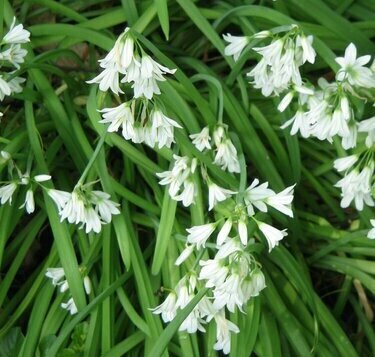Edible Onionweed
Onionweed is flowering now, with that distinctive 'onion' scent if you walk on them. And even though their name includes the word 'weed', they are just wild onions and are actually edible!
Onionweed can substitute all things onion and they have all the same benefits as onions, leeks, garlic and spring onions which help reduce blood cholesterol levels, stimulate the circulatory blood system, are antimicrobial and anti-inflammatory, and acts as a digestive system tonic plus it contains chlorophyll, fibre, antioxidants, vitamins and minerals.
Onionweed can enhance the bioavailability of iron and zinc when including them in your diet. And just 70 grams of onionweed provides the daily recommended intake of Vitamin K, which has a potential role in bone health by promoting bone formation and strengthening activity.
They are a prebiotic for the digestive system, helpful for the beneficial gut flora, and are helpful for memory due to the high levels of lutein and folate.
They contain sulphur compounds giving it the onion smell, which protect from colds and flu and boost your immune system. Nature knows what we need at different times of the year!
Onion weed is a great ground cover in an orchard because it's anti-microbial properties will help deter damaging insects and fungi from your fruit. The flowers too are visited by bees at a time when there are not a lot of other flowers blooming.
What to do with Onionweed:
Use the stalks of onionweed as you would chives or spring onions, and use the flowers to garnish salads, quiches, dips etc.
Some other delicous ideas:
So next time you come across Onionweed, see it as the abundant gift from Papatuanuku that it is, and add some to your meals.
Kai is medicine! ♥
Posted: Monday 1 August 2022

